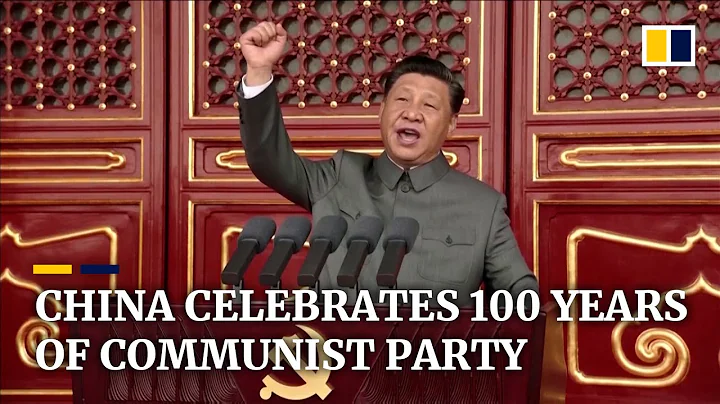
Several scholars and senior media people I know highly respect thinkers, accountants, and economists Gu Zhun. Gu Zhun was born in Shanghai on July 1, 1915. Six years later, the Communist Party of China was born. His birthday is therefore easy to remember. However, not many people know him now, so it is necessary to popularize his knowledge.
There is an entry on Gu Zhun in the "Dictionary of Life and Death of Chinese and Foreign Celebrities" compiled by me, which summarizes his life. In 1927, after graduating from the old commercial junior high school of the Chinese Vocational School run by Huang Yanpei, he was recommended by Yin Yahua, a teacher at Liuyun Primary School, and introduced by Wang Zhishen. Gu Zhun entered the Lixin Accounting Firm founded by Pan Xulun as a trainee.

From 1927 to 1940, when he left Shanghai, Gu Zhun worked at Lixin Accounting Firm for 14 years. He developed comprehensively from engraving wax paper, printing handouts, and correcting textbooks, to lecturing at night schools, serving as director of night schools, and writing accounting books. At the same time, he also served as an adjunct professor at several universities including Zhijiang and Hujiang. In 1934, when he was 19 years old, he completed his first accounting book, "Bank Accounting". Later publications include "Elementary Business Bookkeeping Textbook", "Elementary Bookkeeping", "Accounting of a Joint Stock Company", "Accounting System of the Bank of China", "Income Tax Principles and Practice", "China Government Accounting System", etc.
After the "September 18th" Incident in 1931, under the national crisis, Gu Zhun accepted Marxism and began revolutionary activities. He first worked in the Hudong District Committee of the Progressive Organization of the Wuwei Association, and was later transferred to the deputy director of the Propaganda Department of the Federation and the chairman of the Shanghai branch. In February 1935, he joined the Communist Party of China. In October 1935, due to the destruction of the Wuweihui organization, he went into exile for the first time in Beijing. After the "December 9" Movement in Peiping in the winter of 1935, a wave of anti-Japanese and national salvation was launched across the country.

In February 1936, Gu Zhun returned to Shanghai from Peking and served successively as secretary of the Shanghai Professional Salvation Association Party League, secretary of the staff branch, director and secretary of the Propaganda Committee of the Jiangsu Provincial Staff Committee, and deputy secretary of the Jiangsu Provincial Committee. In August 1940, he left Shanghai and went to the anti-Japanese base area in southern Jiangsu. From 1940 to 1945, he traveled from the liberated areas of southern Jiangsu and northern Jiangsu to Yan'an . In 1945, Japan surrendered, and he returned to East China from Yan'an. During this period, he successively served as the propaganda director of the Sunan Road East Special Committee of the Communist Party of China, secretary of the Chengxiyu Working Committee, secretary of the Jiangnan Administrative Committee, and deputy director of the Financial and Economic Department of the Jianfu District Administrative Office and Huaihai District Administrative Office in northern Jiangsu.
After January 1946, Gu Zhun successively served as the general manager of Huaiyin Lifeng Cotton Company, the director of the Goods Management Department of the Suzhong District Administrative Office, and the director of the Shandong Provincial Department of Finance. On the eve of the liberation of Shanghai, he served as the captain of the Qingzhou Corps (a cadre team that took over Shanghai's financial work) and prepared to take over Shanghai. In May 1949, he returned to newly liberated Shanghai with the army. After entering Shanghai, we faced not only the heavy takeover work, but also the far more arduous and important tasks of supporting the national liberation (and later the Resist US Aggression and Aid Korea ) and striving for a basic improvement in my country's financial and economic situation. During this period, he served as director of the Shanghai Municipal Finance Bureau and director of the Taxation Bureau, deputy minister of finance of the East China Military and Political Commission (part-time), and deputy director of the Shanghai Municipal Finance and Economic Commission (part-time). After being transferred to Beijing in 1953, he served successively as director of the Finance Department of the Central Ministry of Construction and Engineering, deputy director of the Luoyang Engineering Bureau, and deputy director of the Resource Comprehensive Investigation Committee of the Chinese Academy of Sciences. In 1956, he joined the Institute of Economics (now part of the Chinese Academy of Social Sciences) as a researcher (part-time).
During the "Three Antis" movement in 1952, Gu Zhun was unfairly punished by being dismissed from all positions inside and outside the party. In 1957 and 1965, he was wrongly classified as a rightist twice.
In 1962, Gu Zhun returned from "decentralization" work and returned to the Institute of Economic Research. Entrusted by Sun Yefang, Gu Zhun once again conducted accounting research. He is the author of two books: "Accounting Principles" and "Several Theoretical Issues in Socialist Accounting".

Although Gu Zhun left few writings on the study of socialist economic theory, some of his views and insights had a considerable impact.As early as 1956, he had already paid great attention to and conducted in-depth research on the fundamental issue of commodity currency relations and the law of value under socialist conditions. In 1957, the third issue of "Economic Research" published his long paper "On the Law of Commodity Production and Value under the Socialist System." In this paper, Gu Zhun clearly pointed out: socialist economy cannot be without economic accounting ; and the only tools that can be used for economic accounting are currency, wages and prices. This "is the use of a "Public measure of value", there is no other choice.
He believes that the socialist economy is a "contradictory unity of planned economy and economic accounting."
After 1962, while engaging in accounting research, Gu Zhun also immersed himself in the translation of famous contemporary foreign economic theory works. Published books include "Capitalism, Socialism and Democracy" by Schumpeter and "Economic Essays" by Mrs. Robinson (both books were published by the Commercial Press). These two books were published after the "Cultural Revolution" and were not seen by Gu Zhun during his lifetime.
On December 3, 1974, Gu Zhun died of lung cancer at Peking Union Medical College Hospital at the age of 59.

59 years old, for a scholar, it is the heyday of producing research results. My friends and I agree that his premature death is a great loss to the Chinese intellectual community.





















